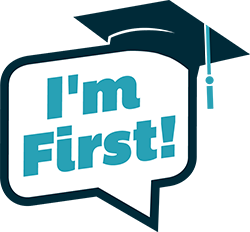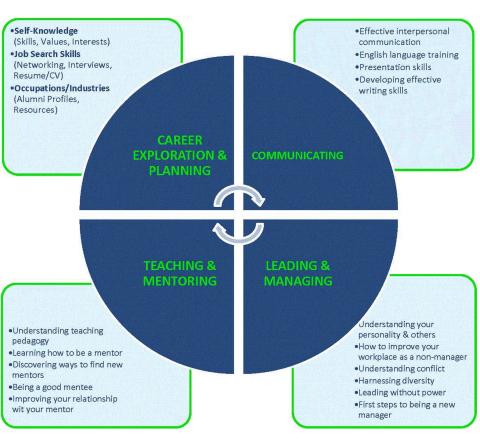If you are the first in your family to attend college, you may have already experienced some challenges or concerns like: not knowing many contacts in the fields of science or medicine through your circle of family and friends or feeling like an imposter and wondering if you really belong in various professional groups or meetings. You are not alone. Research shows that first generation college students often have concerns like these, but research also highlights many of the strengths which first generation students bring to their lives and careers including:


Have you drafted a career plan? Do you know if you have the required skills for your dream job? Figuring out the next step in your career and how to prepare for it can be stressful. But developing a plan, early on in your career, will help guide you through this process of identifying and achieving your career goals. This year, the OITE will be dedicating its blog to help you develop a Career Success Plan, focusing on a variety of core competencies that are critical for your career development, the first being career exploration and planning.

Name: Benjamin Porter, PhD
Job Title & Company: Communications Manager, Office of Communications; The University of Texas at Dallas
Location: Dallas, Texas
How long you’ve been in your current job: 3 months
Postdoc Advisor, IC and subject: Alan Koretsky, NINDS, Behavioral fMRI
As you get ready to end your summer internship or your summer rotations as a grad student, don’t forget to keep in touch.
Post written by Lori M. Conlan, Director of the Postdoc Office and the Career Services Center at the OITE This week I had lunch with the first mentor I had outside of the lab environment. In 2006, I had just left my postdoc to join a non-profit in Manhattan—the New York Academy of Sciences. I knew I could do the job running a career development program for graduate students and postdocs, but I was clueless about how life worked in an office. I started on a Tuesday, and by Friday I was sent off on my first business trip to Miami.
Post written by Sharon Milgram, Director of The Office of Intramural Training & Education. Science careers, at or away from the bench, require us to be life-long learners. To be successful, we are always learning – and teaching – new skills. While many of us enjoy this, it also comes with frustrations and challenges. In considering how we learn, I was struck by the excellent and concise explanation of the stages we typically go through as we learn and develop new skills.
There are many important aspects to having a successful career. One aspect often overlooked is making sure you have a community of peers. Communities provide more than just support for everyday life and challenges. They are great for building networks, developing co-mentoring relationships and gaining leadership experience. Coming to a large campus, like the NIH or a college campus, can feel like you have landed on a different planet. Everything is so different.
Post written by a guest blogger Yewon Cheon, former postdoc in the National Institute of Aging and current Program Coordinator in OITE.
“I love interviewing people!”
If you have been following the blog calendar, you have been thinking about your career, and maybe have even met with a career counselor. That means (hopefully) that you have a few ideas about career options, and some questions that an informational interview might help you answer. Now that you have filled in your networki

